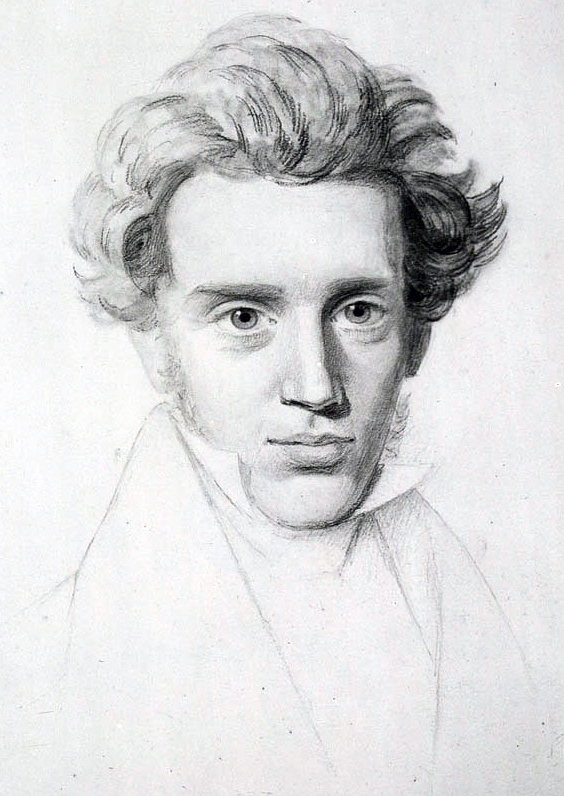Frases célebres de Søren Kierkegaard
Frases de vida de Søren Kierkegaard
“Vivir en el recuerdo es el más perfecto modo de vida que se puede imaginar.”
Fuente: Ortega Blake (2013). En Google Books. https://books.google.cat/books?hl=es&id=QJIAVIKP1dgC&q=Kierkegaard#v=snippet&q=Kierkegaard&f=false Consultado el 23 de diciembre de 2019.
Frases de fe de Søren Kierkegaard
Fear and Trembling
Søren Kierkegaard Frases y Citas
“Dejemos con toda libertad a los sabios el privilegio de no contradecirse nunca.”
/ "Dejemos con toda tranquilidad a la gente sabia el orgullo de no caer nunca en contradicción."
Fuente: Diario de un seductor
Søren Kierkegaard: Frases en inglés
Soren Kierkegaard, For Self-Examination, Hong p. 74
1850s, For Self-Examination (1851), It Is the Spirit Who Gives Life
Journals and Papers III 3284 (1841)
1840s, The Journals of Søren Kierkegaard, 1840s
1850s, Two Discourses at Friday Communion (August 1851)
Søren Kierkegaard, Christian Discourses, The Joy of it – That We Suffer Only Once But Triumph Eternally. P. 108 Lowrie Translation 1961 Oxford University Press
1840s, Christian Discourses (1848)
Soren Kierkegaard, For Self-Examination, Hong p. 26
1850s, For Self-Examination (1851), What is Required in Order to Look at Oneself with True Blessing in the Mirror of the Word?
1840s, On the Concept of Irony with Continual Reference to Socrates (1841)
Fuente: 1840s, On the Concept of Irony with Continual Reference to Socrates (1841), p. 304
1850s, An Upbuilding Discourse December 20, 1850
Concluding Unscientific Postscript to Philosophical Fragments, Vol. I, Hong p. 353
1840s, Concluding Unscientific Postscript (1846)
Journal entry, August 1, 1835
1830s, The Journals of Søren Kierkegaard, 1830s
“Soren Kierkegaard, For Self-Examination, Hong p. 76-77”
1850s, For Self-Examination (1851), It Is the Spirit Who Gives Life
1850s, For Self-Examination (1851), It Is the Spirit Who Gives Life
Fuente: 1840s, Works of Love (1847), p. 378
Soren Kierkegaard, For Self-Examination, Hong p. 63
1850s, For Self-Examination (1851), Christ is the Way
The Point of View for My Work as An Author, Soren Kierkegaard, translated by Walter Lowrie 1939, 1962 P. 77
1840s, The Point of View for My Work as an Author (1848)
Soren Kierkegaard, For Self-Examination, Hong p. 45
1850s, For Self-Examination (1851), What is Required in Order to Look at Oneself with True Blessing in the Mirror of the Word?
Søren Kierkegaard, Purity of Heart is to Will One Thing, 1847 p. 40-41
1840s, Upbuilding Discourses in Various Spirits (1847), Purity of Heart (1847)
Fuente: 1850s, An Upbuilding Discourse December 20, 1850, P. 152
Søren Kierkegaard, Upbuilding Discourses in Various Spirits, Hong p. 323
1840s, Upbuilding Discourses in Various Spirits (1847)
S. Kierkegaard 1846 Journals, Hannay 1996, VII IB200, p. 252
1840s, The Journals of Søren Kierkegaard, 1840s
Journal entry, August 1, 1835
1830s, The Journals of Søren Kierkegaard, 1830s
1850s, Two Discourses at Friday Communion (August 1851)
Eighteen Upbuilding Discourses: "Patience in Expectancy" (1844)
1840s, Eighteen Upbuilding Discourses
Three Discourses at Friday Communion November 14, 1849 Hong translation 1997 P. 132
1840s, Three Discourses at the Communion on Fridays (1849)
Fuente: 1840s, Works of Love (1847), p. 296
Soren Kierkegaard, For Self-Examination, Hong p. 58-59
1850s, For Self-Examination (1851), Christ is the Way
Fuente: 1850s, Attack upon Christendom (1855), p. 121
(JP IV A81) 1843
1840s, The Journals of Søren Kierkegaard, 1840s
